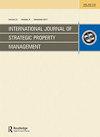INVESTIGATING THE INFLUENCE OF HOMEBUYERS’ SOCIODEMOGRAPHIC FACTORS ON PREFERENCES OF SUSTAINABLE AFFORDABLE HOUSING
IF 1.7
4区 管理学
Q3 MANAGEMENT
International Journal of Strategic Property Management
Pub Date : 2023-11-13
DOI:10.3846/ijspm.2023.20200
引用次数: 0
Abstract
Low- and middle-income groups face difficulties in homeownership because of the urbanisation and rising living standards, in which they rely heavily on the government’s housing provision. Yet, affordable housing provided in Malaysia has been repeatedly criticised as it is not up to homebuyers’ expectations and is not supported to reach sustainable goals. Hence, this research aims to investigate the influence of the sociodemographic background of the homebuyers on their preferences for sustainable affordable housing in Malaysia. The questionnaire was designed and responses were obtained from 316 low- and middle-income homebuyers. Spearman rank correlation and ordinal regression were used to investigate the association between homebuyers’ sociodemographic characteristics and their preference for sustainable affordable housing. Spearman correlation analysis revealed that gender, generation, marital status and monthly income were significantly correlated with sustainability criteria. The ordinal regression model reflected that stronger preferences for sustainable affordable housing were shown among female homebuyers, Gen Y and Baby Boomer homebuyers and married ones. The research findings close the gap between users (homebuyers) and the providers (developer/government) in the provision of affordable housing. Developers and the local authorities can provide sustainable affordable housing solutions that suit the needs of different homebuyers.调查购房者的社会人口因素对可持续经济适用房偏好的影响
由于城市化和生活水平的不断提高,中低收入群体在拥有住房方面面临困难,他们严重依赖政府提供的住房。然而,马来西亚提供的经济适用房一再受到批评,因为它不符合购房者的期望,也不支持实现可持续目标。因此,本研究旨在调查马来西亚购房者的社会人口背景对他们对可持续经济适用房的偏好的影响。我们设计了一份问卷,并从316名中低收入购房者那里获得了答案。采用Spearman秩相关和序数回归研究了住房购买者的社会人口学特征与可持续经济适用房偏好之间的关系。Spearman相关分析显示,性别、年龄、婚姻状况和月收入与可持续性标准显著相关。序数回归模型反映出女性购房者、Y世代和婴儿潮一代购房者以及已婚购房者对可持续经济适用房的偏好更强。研究结果缩小了用户(购房者)和提供者(开发商/政府)在提供经济适用房方面的差距。开发商和地方当局可以提供可持续的经济适用房解决方案,以满足不同购房者的需求。
本文章由计算机程序翻译,如有差异,请以英文原文为准。
求助全文
约1分钟内获得全文
求助全文
来源期刊
CiteScore
4.00
自引率
18.50%
发文量
23
审稿时长
15 weeks
期刊介绍:
International Journal of Strategic Property Management is a peer-reviewed, interdisciplinary journal which publishes original research papers. The journal provides a forum for discussion and debate relating to all areas of strategic property management. Topics include, but are not limited to, the following: asset management, facilities management, property policy, budgeting and financial controls, enhancing residential property value, marketing and leasing, risk management, real estate valuation and investment, innovations in residential management, housing finance, sustainability and housing development, applications, etc.

 求助内容:
求助内容: 应助结果提醒方式:
应助结果提醒方式:


